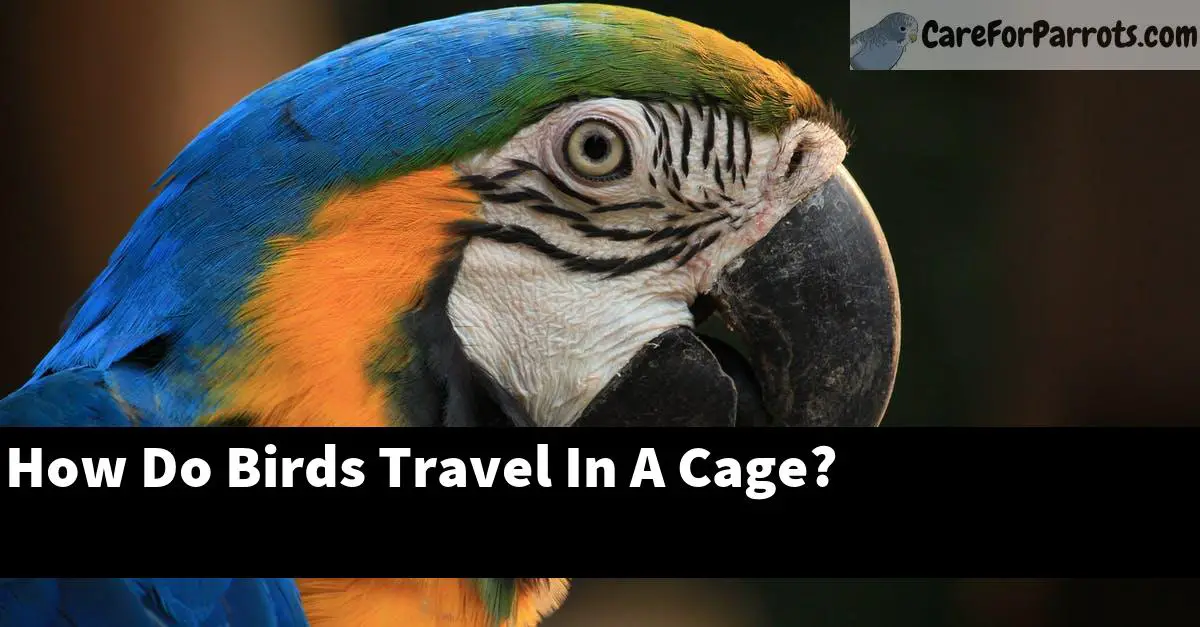Birds travel in a cage by flying.
Table of Contents
How do you think a bird feels when it’s in a cage?
Cages significantly reduce the natural behavior and activity of captive birds. In the wild, birds are constantly on the move, exploring their surroundings and interacting with other birds.
As a result, birds in cages often have problems with socialization and become isolated from their natural environment.
Cages also deprive birds of food, water, and shelter.
This can lead to health problems, such as weight loss, dehydration, and pneumonia. In some cases, caged birds will even commit suicide by flying into the bars of their enclosure.
All of these consequences underscore the importance of free-range bird habitats, which provide birds with a variety of natural objects to perch, play, and fly around. These habitats also allow birds to freely interact with one another and with their surroundings, which is essential for their development and welfare.
Do you think it’s natural for a bird to be in a cage?
There is no right or wrong answer to this question. Each person’s opinion would likely be different.
Some people might believe that it is unnatural for a bird to be in a cage, while others might believe that it is necessary for the bird’s safety. Ultimately, it is up to the individual to decide whether or not they believe that it is appropriate for a bird to be in a cage.
How does a bird travel in a cage differently than if it were free?
When a bird is in a cage, it has limited space to move around. This means that the bird has to use its wings to fly.
However, if the bird were free, it could fly away from the cage. This is because free birds have more room to move around and can escape predators.
Matiniy 2 Pcs Pirate Parrot on Shoulder Life Sized Artificial Parrot Toy for Costume Dress-up Accessory for Halloween Party(Multicolor)
$14.99 (as of 24/02/2026 22:51 GMT +03:00 - More infoProduct prices and availability are accurate as of the date/time indicated and are subject to change. Any price and availability information displayed on [relevant Amazon Site(s), as applicable] at the time of purchase will apply to the purchase of this product.)Bird Toys, Parrot Toys for Large Birds,Natural Corn cob and Loofah Slices Bird chew Toys for African Grey Parrots, Macaws, Cockatoos, Amazon Parrot and other Small and Medium-Sized Parrot (Colorful)
$12.97 ($12.97 / count) (as of 25/02/2026 00:17 GMT +03:00 - More infoProduct prices and availability are accurate as of the date/time indicated and are subject to change. Any price and availability information displayed on [relevant Amazon Site(s), as applicable] at the time of purchase will apply to the purchase of this product.)Kaytee Fiesta Parrot Food, Nutritious and Fun Blend, Supports Skin, Feather, Digestion, Brain and Heart Health, 4.5 pounds
16% OffWhat kind of impact does being in a cage have on a bird’s health?
There is no question that birds kept in cages experience significant health concerns. In fact, research has consistently shown that birds kept in cages are at an increased risk for various health problems, including obesity, feather picking, and respiratory problems.
In addition, cage confinement can lead to a decrease in the bird’s social interaction and overall well-being.
Cage confinement can also have a negative impact on a bird’s physical and psychological well-being.
For example, confined birds often develop obesity due to lack of exercise and access to healthy foods. In addition, confined birds may become more aggressive and destructive due to boredom and lack of social interaction.
Finally, confined birds may suffer from reduced levels of stress and anxiety, which can lead to health problems in other areas of their lives.
All of these problems underscore the importance of bird freedom and access to a wide range of natural environments.
In fact, research has shown that birds kept in cages are significantly less likely to live long, healthy lives. If you are considering keeping a bird in a cage, please be sure to consult with a qualified bird care professional to ensure that the bird’s health and well-being are the top priority.
What are the benefits of having a pet bird in a cage?
There are many benefits of having a pet bird in a cage. First and foremost, pet birds provide companionship and love to their owners.
They can also be a source of entertainment and inspiration. Pet birds can also help to keep an owner occupied and mentally stimulated.
Finally, pet birds can provide environmental enrichment, which can improve the quality of life for their owners.
Are there any drawbacks to having a pet bird in a cage?
There are a few potential drawbacks to having a pet bird in a cage. First, birds naturally want to fly and perch, and a cage can limit their movement.
Second, a bird in a cage can become stressed and may develop behavioral problems. Finally, a pet bird in a cage can be difficult to care for and may require more attention than a bird living in the wild.
How much space should a pet bird have in its cage?
There is no definitive answer to this question as it depends on the size, age, and activity level of the pet bird. Generally, however, a pet bird should have at least a 1-gallon (3.78 litres) cage. A floor-sized cage is also acceptable for a pet bird.
Summary
The birds in the cage can’t fly very far, but they can turn around and fly back to the cage.
























